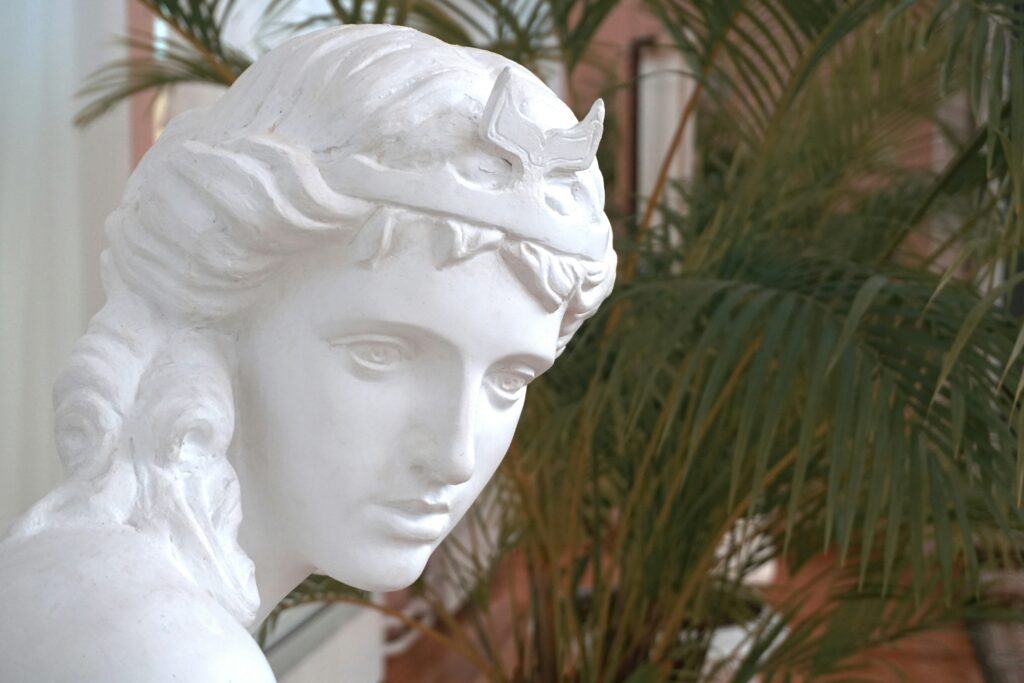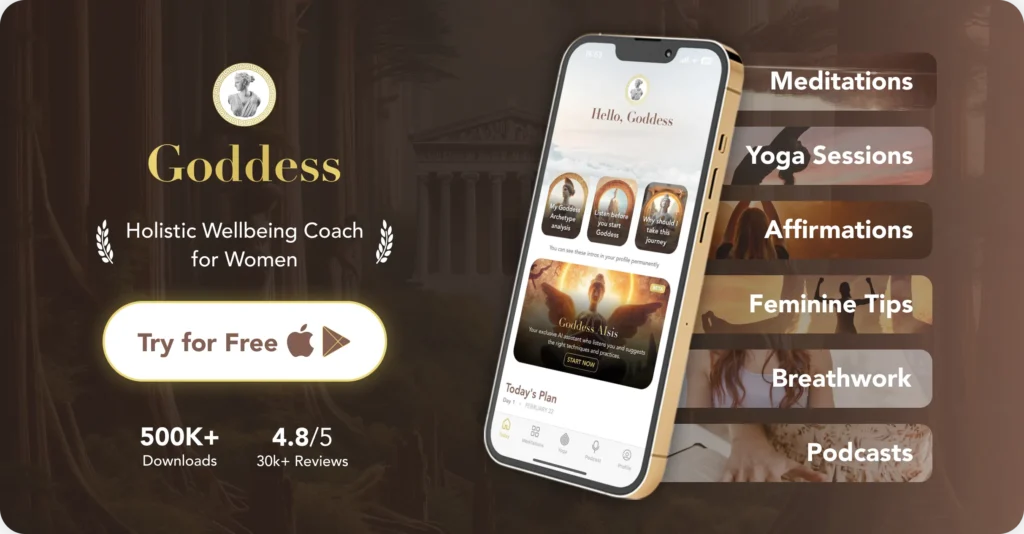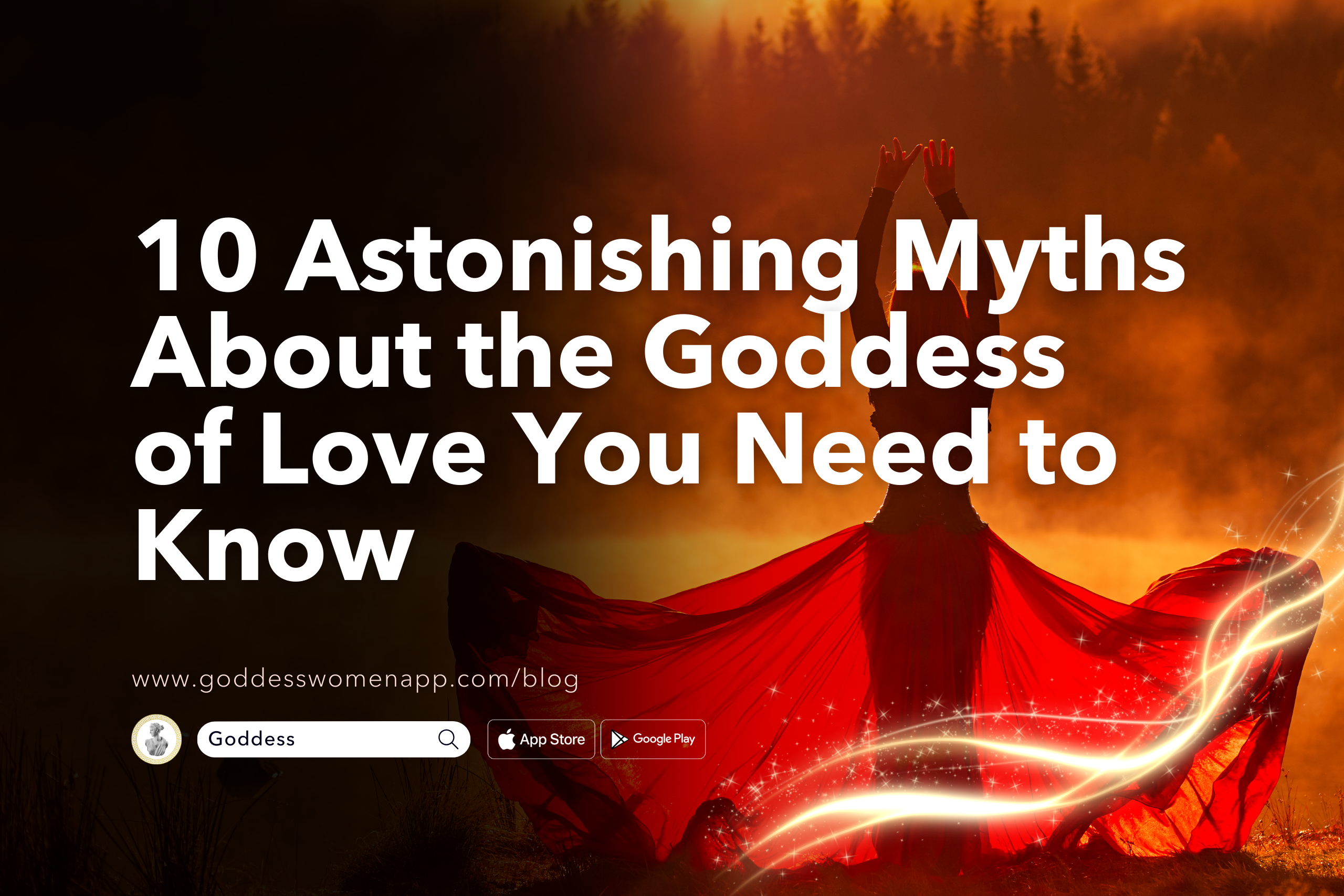Table of Contents
Introduction
When we think of love, our minds often drift to the soft whispers of the heart, the electric touch of desire, and the tales as old as time that narrate love’s infinite dances. Yet, at the center of these tales, often, stands a figure of divine beauty and power: the goddess of love. Across cultures, from the misty shores of Greece to the vast expanse of the Norse fjords, tales of a deity dedicated to love, beauty, and desire have captivated the human imagination.
But who are these goddess of love ethereal beings whose very essence is woven with the threads of human longing? Prepare to be enchanted as we unveil the 10 most astonishing myths about the goddess of love. From the miraculous birth of the mother Venus to Freya’s daring adventures, these stories promise a journey through love’s most divine expressions.

The Birth of Roman Goddess Venus: A Seafoam Miracle
Imagine the vast, churning sea, where foam and waves mingle under the caress of the wind. It is from this primal chaos that the goddess of love Venus, known as Aphrodite to the Greeks (roman equivalent of Aprhodite) , emerged, a goddess so breathtaking that the very sea sought to clothe her naked beauty.
Born from the foam (aphros in Greek), Aphrodite’s entrance into the world was nothing short of a spectacle—a miracle of beauty born from the violence of the sea. Artists and poets have long been inspired by this origin story, depicting her arrival on earth as a shell, the embodiment of perfect beauty and grace.
Why does this myth captivate us so? Perhaps it’s the stark contrast of her serene beauty against the tumultuous sea, a reminder of love’s power to emerge from chaos. Venus’s birth signifies not just the arrival of beauty into the world but also the birth of desire itself—raw, powerful, and uncontrollable lust. As we navigate our own seas of chaos, Venus’s story is a beacon of hope, promising the emergence of beauty and true love in the most unexpected places.

The Unmatched Beauty of Psyche
The tale of Psyche, the daughter of a mortal woman of such stunning beauty that she incited the jealousy of Aphrodite herself, takes us into the heart of Greek mythology. Sent by Aphrodite to be tormented by the god of love, Eros, Psyche instead becomes his lover, igniting a saga of love’s trials and triumphs. Their story is a testament to the enduring power of love, as Psyche embarks on a series of divine tasks, each more impossible than the last, in her quest to be reunited with Eros.
Psyche’s journey is emblematic of the soul’s search for completion through love, a theme that resonates deeply in the human psyche. Her eventual transformation into a goddess, through her marriage to Eros, underscores the idea that love’s true essence is transformative, elevating the human to the divine. Psyche’s unmatched beauty, both internal and external, serves as a reminder to women that love’s most profound challenges are also its most rewarding gifts.

Greek Goddess Aphrodite and Adonis: A Love Doomed by Fate in Greek Mythology
Returning to the famous ancient Greek pantheon, the tale of Aphrodite (roman equivalent of Aphrodite is Venus) and Adonis represents the classic tragedy of doomed love. Aphrodite, the goddess of love and beauty, falls deeply in love with the mortal Adonis, a youth of unparalleled beauty. Their love affair, passionate and intense, is marred by the shadow of prophecy and jealousy. Despite Aphrodite’s divine nature, she is unable to protect Adonis from his fate at the tusks of a wild boar, a death foretold yet unavoidable.
The story of Aphrodite and Adonis explores the themes of vulnerability and loss, even among the gods. It illustrates the poignant truth that love, for all its power and intensity, is often subject to the whims of fate. The cycle of Adonis’s death and rebirth, celebrated by the ancients in festivals, reflects the enduring nature of love, capable of renewing itself even in the face of despair. This myth reminds us that love’s greatest lessons are often learned in the crucible of loss, teaching us the value of cherishing the beauty and fragility of the moments we share.

FAQ: Goddesses and Gods of Love
Who were the two goddesses of love?
In ancient mythology, the two well-known goddesses of love are Aphrodite from Greek mythology and Venus from Roman mythology. Aphrodite is celebrated as the goddess of love, beauty, and sexual desire, often depicted as emerging from the sea. Venus, her Roman counterpart, shares similar domains, embodying love, beauty, and fertility, and is one of the central figures worshipped in Roman religious and mythological traditions.
Who is the strongest goddess of love?
Determining the “strongest” goddess of love can be subjective and depends on the cultural and mythological context. However, Aphrodite (Greek mythology) is often considered one of the most powerful goddesses of love because of her significant influence over both mortals and gods alike. Her power was such that she could manipulate the emotions and desires of gods and humans, making her an influential deity in Greek mythology along with greek god.

Who is the Roman god or Greek god of love?
The Roman god of love is Cupid, also known as Amor in Rome. His statue is often depicted as a young boy with wings, carrying a bow and arrow. According to mythology, those hit by Cupid’s arrows are filled with uncontrollable desire. Cupid is the son of Venus (the Roman goddess of love) and Mars (the god of war), embodying the complexity of love’s nature.
Who is the goddess of universal love?
While specific deities dedicated to “universal love” or sexuality are less common in ancient mythologies, several goddesses are associated with aspects of love that transcend the personal or sexual, embodying a more inclusive or universal dimension. For example, in Hinduism, Parvati represents love and devotion, both in the familial and broader universal sense. Similarly, Quan Yin (or Guanyin) in Buddhism is venerated as the Goddess of Mercy and Compassion, often considered a manifestation of universal love and kindness.
Conclusion
The goddesses and gods of love, in their many forms, embody the multifaceted nature of love itself—its power to inspire and destroy, to bind and liberate, to create and transform. In today’s world, where the ancient meets the modern, and the mystical intertwines with the digital, we invite you to continue exploring the mysteries of love and the divine feminine within you. Dive into the realm of the goddesses, and discover which goddess archetype resonates with your spirit. Embark on this journey of self-discovery with the Goddess App and take the archetype test to find out which goddess of love you are.





